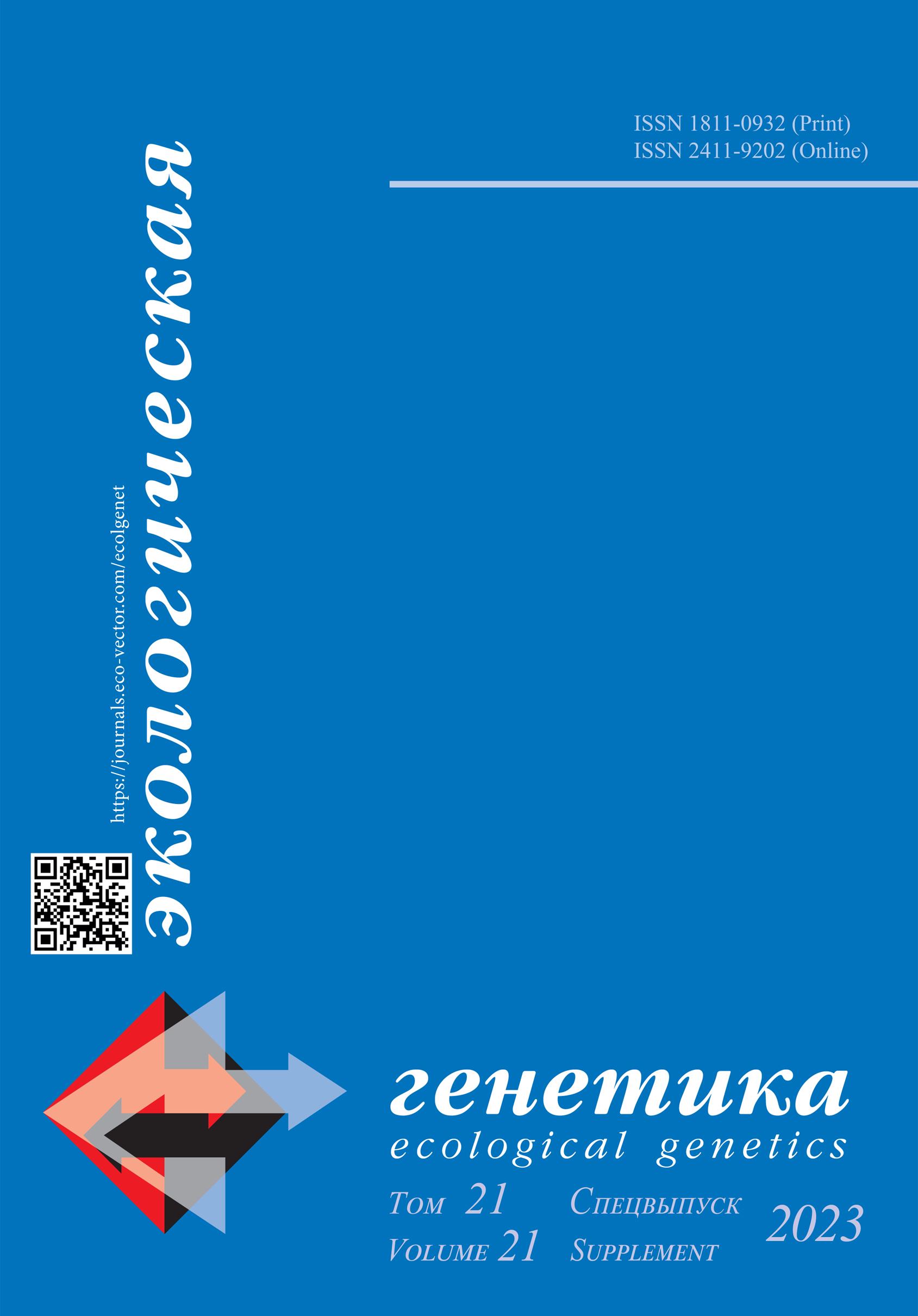Knockout of the tomato translational elongation factor using CRISPR-Cas9 technology
- Авторы: Baranov D.Y.1, Dolgov S.V.1, Timerbaev V.R.1
-
Учреждения:
- Branch of the Institute of Bioorganic Chemistry of the Russian Academy of Sciences in Pushchino
- Выпуск: Том 21 (2023): Спецвыпуск
- Страницы: 47-47
- Раздел: «ГМО: ИСТОРИЯ, ДОСТИЖЕНИЯ, СОЦИАЛЬНЫЕ И ЭКОЛОГИЧЕСКИЕ РИСКИ»
- Статья получена: 13.08.2023
- Статья одобрена: 29.08.2023
- Статья опубликована: 04.12.2023
- URL: https://journals.eco-vector.com/ecolgenet/article/view/568327
- DOI: https://doi.org/10.17816/ecogen568327
- ID: 568327
Цитировать
Полный текст
Аннотация
Pathogenic viruses cause severe tomato losses around the world despite the development of both classical breeding and biotechnological methods. Since replication of phytoviruses involves the interaction between viral components and host plant factors, therefore loss-of-function mutations in the latters can confer viral resistance in plants. There are evidences that eukaryotic translation elongation factor 1 (eEF1) proteins are involved in the replication of some plant viruses. However, the involvement of individual subunits of the eEF1B in the viral cycle is still poorly understood.
This work is devoted to the study of the role of the eEF1B factor in the development of tomato virus infection. The contribution of each of the α, β and γ subunits of the eEF1B factor to tomato viral resistance will be determined by CRISPR-Cas9-induced targeted mutagenesis of corresponding gene sequences. As an applied aspect, we expect to find ways to create tomato plants with increased resistance to certain viral diseases. A series of binary vectors contained sequences encoded different RNAs targeting the eEF1B subunit genes was constructed. As a result of Agrobacterium-mediated transformation of tomato, more than 300 independent transgenic lines were obtained. The presence of expression cassettes with functional genes (Cas9 and sgRNAs) was confirmed by PCR. The presence of mutations in target sequences was detected using T7E1 analysis and sequencing. It turned out that the majority of transgenic lines carrying mutations have a chimeric genotype, and mutations of the target genes in the homozygous state were not detected. The propagation of self-pollinated transgenic plants under greenhouse condition and following analyses of target genes to segregate the insertion of foreign DNA and obtain homozygous mutations in eEF1B subunit sequences are in progress.
Ключевые слова
Полный текст
Pathogenic viruses cause severe tomato losses around the world despite the development of both classical breeding and biotechnological methods. Since replication of phytoviruses involves the interaction between viral components and host plant factors, therefore loss-of-function mutations in the latters can confer viral resistance in plants. There are evidences that eukaryotic translation elongation factor 1 (eEF1) proteins are involved in the replication of some plant viruses. However, the involvement of individual subunits of the eEF1B in the viral cycle is still poorly understood.
This work is devoted to the study of the role of the eEF1B factor in the development of tomato virus infection. The contribution of each of the α, β and γ subunits of the eEF1B factor to tomato viral resistance will be determined by CRISPR-Cas9-induced targeted mutagenesis of corresponding gene sequences. As an applied aspect, we expect to find ways to create tomato plants with increased resistance to certain viral diseases. A series of binary vectors contained sequences encoded different RNAs targeting the eEF1B subunit genes was constructed. As a result of Agrobacterium-mediated transformation of tomato, more than 300 independent transgenic lines were obtained. The presence of expression cassettes with functional genes (Cas9 and sgRNAs) was confirmed by PCR. The presence of mutations in target sequences was detected using T7E1 analysis and sequencing. It turned out that the majority of transgenic lines carrying mutations have a chimeric genotype, and mutations of the target genes in the homozygous state were not detected. The propagation of self-pollinated transgenic plants under greenhouse condition and following analyses of target genes to segregate the insertion of foreign DNA and obtain homozygous mutations in eEF1B subunit sequences are in progress.
Об авторах
Denis Baranov
Branch of the Institute of Bioorganic Chemistry of the Russian Academy of Sciences in Pushchino
Email: d.y.baranov@yandex.ru
Laboratory of Expression Systems and Plant Genome Modifications
Россия, Moscow RegionSergey Dolgov
Branch of the Institute of Bioorganic Chemistry of the Russian Academy of Sciences in Pushchino
Email: dolgov@bibch.ru
ORCID iD: 0000-0003-1399-3235
SPIN-код: 6511-5343
Dr. Sci. (Biol.), Laboratory of Expression Systems and Plant Genome Modifications
Россия, Moscow RegionVadim Timerbaev
Branch of the Institute of Bioorganic Chemistry of the Russian Academy of Sciences in Pushchino
Автор, ответственный за переписку.
Email: timerbaev@gmail.com
ORCID iD: 0000-0002-1253-5235
SPIN-код: 5797-1342
Laboratory of Expression Systems and Plant Genome Modifications
Россия, Moscow RegionСписок литературы
Дополнительные файлы










